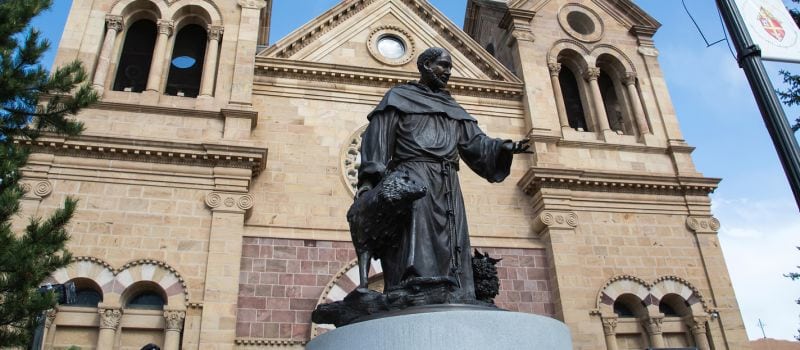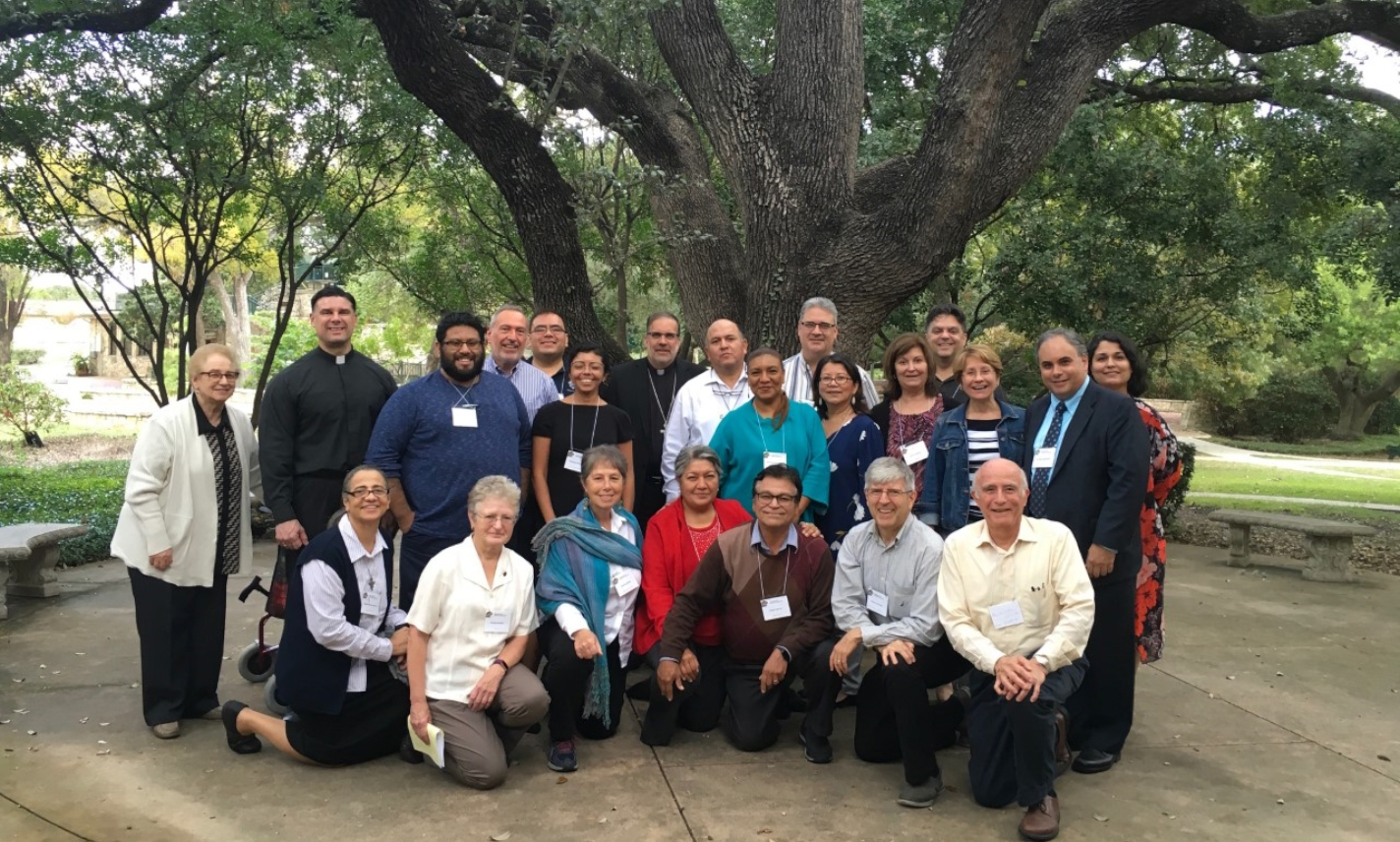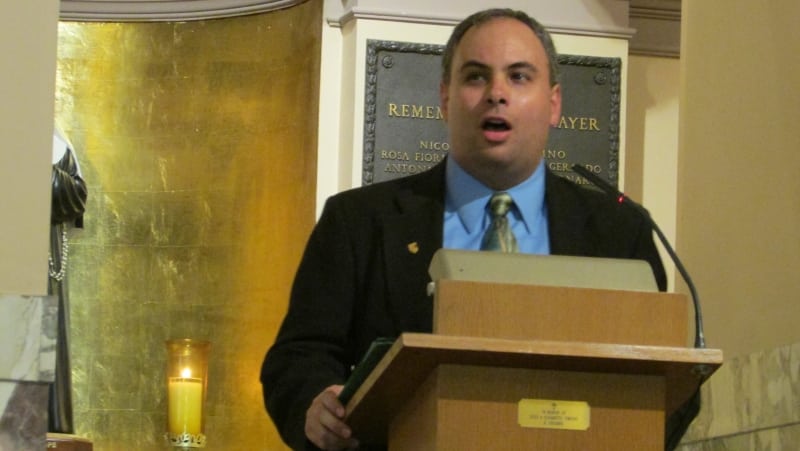On March 10, 2016, I presented my first public paper after completing my Ph.D. at The Catholic University of America in December. It was to the Religion, Peace and Conflict section of the Mid-Atlantic Region of the American Academy of Religion and Society of Biblical Literature joint conference held over two days in New Brunswick, New Jersey.
The full title was “‘To Unite What Has Fallen Apart’: Contemporary Peacemaking in the Tradition of St. Francis and St. Clare of Assisi.” The text of the presentation, which I eventually hope to turn into a full article was based on the proposal I originally submitted to the MAR-AAR, which was as follows:
Systemic peacemaking is a form of conflict resolution which seeks to negotiate and resolve imbalances of institutional and/or structural power which, if left unaddressed, can be the cause of substantial interpersonal, civic or global conflicts. A core goal of peacemaking is the development of strategies, the implementation of processes, and the ongoing commitment to personal and social transformation which can lead to mutual accountability in a context of shared responsibility. Such a goal serves the overall objectives of peacemaking: creating the conditions for a lasting and comprehensive structural commitment to proactively address conflict, and, thereby, to produce a lasting and just peace.
Given that goal and those objectives, it is not surprising that individuals or groups involved in peacemaking often base their efforts, in part, upon a spiritual or religious understanding. Such spiritual motivation is thus a significant point of study in relation to contemporary peacemaking methodology.
This paper seeks to illuminate and illustrate the affinity of one particular spiritual tradition with elements of certain peacemaking methodologies. Specifically, it will examine some of the key elements of a peacemaking spirituality present in the Franciscan tradition, that is, the trans-denominational spiritual legacy of the medieval Roman Catholic saints Francis (1182-1226) and Clare (1194-1253) of Assisi. It will also examine the ways in which this heritage correlates to tactical peacemaking and negotiation as presented by Roger Fisher and William Ury in their co-authored work, Getting to Yes.
The paper will proceed in four steps. First, some distinctive peacemaking elements of the Franciscan tradition will be identified. This identification will be derived from historical scholarship of Francis and Clare and the many subsequent legends which developed around them in popular piety following their death. An examination of their histories and these developments will highlight their commitment to live in simplicity, closest to the experience of persons who were poor and marginalized, and in obedience to the Gospel calls of compassion and love for enemies. Second, the tactics of peacemaking and negotiation presented by Fisher & Ury in Getting to Yes will be examined, with an emphasis upon how their tactics promote peacemaking that strives to establish respectful relationships in the midst of the power dynamics that are at work in any negotiation or peacemaking effort.
Third, the elements of the Franciscan tradition and the tactics highlighted by Fisher & Ury will be correlated to demonstrate the ways in which they are mutually beneficial to each other. A Franciscan spirituality, which highlights solidarity with the poor and also siblinghood, which views all persons and the whole creation as brothers and sisters, provides a spiritual grounding for these particular peacemaking tactics. Simultaneously, these tactics provide a way to concretize those Franciscan ideals at the level of power dynamics, for without these or similar tactical application, such ideals are in danger of remaining contained to a strictly interpersonal application. Fourth and finally, some contemporary situations of conflict will be broadly viewed in light of the Franciscan peacemaking method articulated.
+ + +
It was both an enjoyable experience to write about something that is exceedingly relevant in today’s social and political environment, where principled negotiation and demonstrated care for those we might find on the “other side” is a casualty of a hyper-polarization that is fostered by multiple partisan interests and sources. It was also meaningful to write about Franciscan spirituality and theology again after a gap of several years (see my last article, on Franciscan care for creation, here) that saw me focus exclusively on topics related to theology of church and to my dissertation. I was inspired to do so following the release of Pope Francis’ encyclical Laudato Si’ on the need for a social, political and moral response to the crisis of global climate change, which draws heavily upon the spirituality and conviction of Saints Francis and Clare. In an era which sees interest in the Franciscan tradition and its incarnational spirituality at its zenith, thanks in large measure to the Pope himself, it can be an important moment to also draw out the implications of the significant peacemaking aspect of that tradition, and, indeed, of Francis himself.



 Request Dr. DelMonico's professional services for a liturgical, ministerial or leadership consultation, or for an academic or public presentation.
Request Dr. DelMonico's professional services for a liturgical, ministerial or leadership consultation, or for an academic or public presentation.